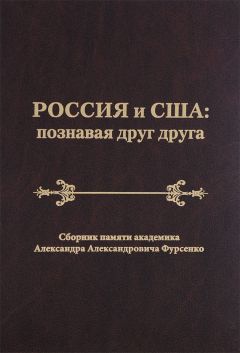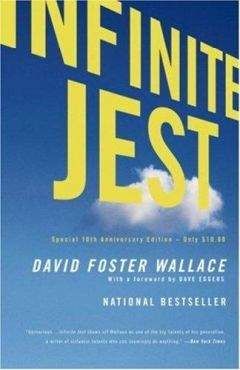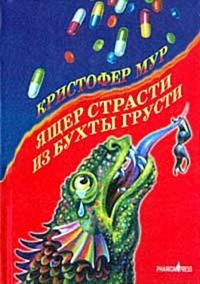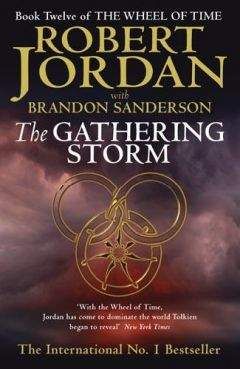В заключение разрешите выразить надежду, что, отвечая требованиям современности, Россия в ее усилиях продолжить реформы добьется в обозримом будущем осуществления мечты своего народа о лучшей жизни, как и помыслов в других странах о мире во всем мире. При всех трудностях, теперь по сравнению с догорбачевской и даже горбачевской эрой существуют великие возможности. Пожалуй, никогда в своей истории Россия не пользовалась такой свободой.
После долгой темной ночи расправ и жестокого диктаторского режима мы пользуемся теперь свободой печати и слова. Всего несколько лет тому назад никто и представить себе не мог, что будут изданы романы писателей из черного списка и что их будут читать без опасения судебного преследования и тюремного заключения. Нет больше цензуры в литературе, театре, во всех видах искусства. Средства массовой информации дают публике сведения, прежде совершенно недоступные. Все это создало в России совершенно новую атмосферу, которая, как мне представляется, делает невозможным перевод часов назад и возвращение к прежнему деспотическому правлению. Россия может и впредь испытывать экономические трудности и политическую нестабильность, но ее народ никогда не вернется к прежнему тоталитарному режиму. С этим покончено».
Blair A. Ruble. Recollections of Alexander Fursenko
On a dark Moscow evening in 1987 with distinctively orange Soviet streetlights transforming a light swirling snow into an unnatural color, I sat in my room at the Academicheskaia Hotel trying to figure out what I would eat, the phone rang. An acquaintance on the other end of the line informed me that just hours before Alexander Fursenko had been elected a Corresponding Member of the Soviet Academy of Sciences. He probably still would be in Moscow and, if so, would be at the second building of the hotel across the way. After checking with the front desk, I was connected to Alexander’s room. He was, needless to say, surprised to receive warm congratulations from me so quickly after his election. We would joke about the call for years ahead.
I first met Alexander while I was working as a young researcher at the Kennan Institute in the late 1970s. He had been one of the first Soviet scholars to be in residence at the Institute just months before I had begun working there after having completed my doctoral degree a few weeks before. Alexander remained a strong supporter of the Institute throughout his life, and visited from time to time whenever he would be in the US. We had met during one of those visits and had remained in touch. We shared a natural bond as I had conducted my dissertation research in Leningrad a few years before.
The 1980s were a difficult period to sustain professional contacts across the Cold War divide, and I can’t say that Alexander and I were more than aware of one another. He enthusiastically lent support whenever he could to my effort to write a history of postwar Leningrad (which eventually appeared in 1990 under the title Leningrad. Shaping a Soviet City). We exchanged greetings – such as my 1987 congratulatory call – and we read one another’s publications. Once perestroika blossomed, we began to correspond more regularly. When, in May 1989, I was appointed as Director of the Kennan Institute, Alexander became one of the first colleagues to congratulate me.
Beginning in September 1991, I became involved in a number of initiatives to try to integrate now-St. Petersburg academic life into the international social science community. I found myself meeting with Alexander on almost every trip to his city. These conversations helped me to appreciate how much both Russian and American social science and humanities research could be enriched by expanded contact with one another. Alexander had similar goals and we cooperated in these ventures.
Meanwhile, I found myself increasingly impressed with Alexander’s expanding professional horizons. I began to realize how much the changes taking place in the late Soviet and early post-Soviet period liberated his mind and his writing. Around this time, I stumbled across a copy of his first book published in 1956 – Struggle for Partition of China and the American Open Door Doctrine – at a bookstall in New York’s Union Square. The Alexander Fursenko who wrote that book had no visible connection to the lively intellect and assiduous archival research habits of the Alexander Fursenko whom I was coming to know. Such contrast raised so many different questions in my mind that I never felt fully comfortable asking. Did Alexander transform himself as he saw new research opportunities? Or, was the Alexander whom I knew always lurking within the author of Struggle for Partition? His magisterial 1967 Dynasty of the Rockefellers suggested the second but, as with so many enigmas of Soviet life, no one probably knew, least of all Alexander himself.
As Alexander’s administrative responsibilities grew I admired his prodigious efforts to secure a sound future for Academy institutions, especially in St. Petersburg. He assumed these obligations at what was probably the most difficult moment in recent history and he deeply cared about protecting all whom he could protect. Simultaneously, he took every opportunity to steal away to the archives and make up for lost time in repositories that once had been closed to him. Alexander was a man on fire with new possibilities; with far greater energy than I had even though I was decades younger. Watching Alexander taught me a great deal about what it means to be responsible for an institution and for the human beings whose fates are linked to it; and about what it means to be a dedicated scholar. If, during the 1980s, Alexander was something of an interesting-though-detached Soviet colleague, by the 1990s he had become a role model.
Around this time I had gotten to know a young historian of the Cold War then working at the University of Hawaii, Manoa, Timothy Naftali. Tim, a Canadian-American, would move to the University of Virginia, eventually directing the Richard Nixon Presidential Library and Museum, and presently serving as the Director of the Tamiment Library and Robert F. Wagner Archives at New York University. Trained at Yale, Johns Hopkins, and Harvard, Tim had impeccable academic credentials. For me, however, he was more interesting for his time in his native Montreal where he once worked as an aide to one of the very few politicians I have ever admired as human being, Quebec Premier Robert Bourassa. Bourassa served during some of Quebec’s and Canada’s darkest days – including the infamous October Crisis of 1970 – and, as I would later discover when I encountered him while he was teaching in Washington, always retained a rare humanity. Tim very much shared the core values that I appreciated in Bourassa.
Tim had begun working on a volume about the Cuban Missile Crisis and had earned a grant to work at the Kennan Institute in early 1996. By the time Tim arrived at the Institute he had begun collaborating with Alexander on what would become their 1997 classic co-authored work “On Hell of a Gamble”: Khrushchev, Castro and Kennedy, 1958–1964; which was followed in 2006 by their Khrushchev’s Cold War: The Inside Story of an American Adversary. No such successful outcome was assured at the project’s beginning. Tim and Alexander had different temperaments, had emerged from different intellectual traditions, had different initial assumptions about what the crisis was really about, and had collected archival documents which often directly contradicted on another.
Tim and Alexander separately raised the possibility of their working on the project together at the Kennan Institute. I immediately understood that we needed to make it happen so that these two increasingly important scholars would have an opportunity to collaborate productively. Eventually, I managed to clear away the usual administrative and bureaucratic underbrush and, for several exciting weeks in 1996, Tim and Alexander shared an office, shared their documents, and shared their commitment to serious disagreement based on evidence.
I made a point during these weeks to walk by during the course of each day to judge the temperature of the room as Tim and Alexander worked their way through their evidence. When I sensed that there might be more heat than light, I would enter and start a conversation about some or other trivial subject. Other times, I would take one or the other out for tea or coffee. I realized that their shared respect for each other, for their sources, and for the participants in the drama of the Missile Crisis was going to produce a landmark work; which, of course, it did.
This account elevates my role in the saga far too high for I was the student. First, I really didn’t know the story of the Crisis other than having been a scared teenager when it happened. Second, I learned from them about what dedication to scholarship really meant. Here were two scholars from societies and backgrounds that were far apart, with political views that did not align except in disagreement, who were struggling with linguistic and generational divides that few ever bother attempting to cross. They worked as hard as they did because both firmly believed that together they could generate greater knowledge and insight than either could have done on his own. They were not only correct in that belief, but they acted on it at no small cost to everything else that they did.
Now, when I hear that it is impossible for Russian and American scholars to work together or learn from one another – or for Russians and Americans more generally to have any reason to even bother with one another – I think back to the small scholar office in downtown Washington, where Alexander and Tim disproved nearly every conventional belief about Russian-American relations simply by their stubborn mutual refusal to accept what everyone else told them to be true.
I remained in touch with Alexander ever after, though we both were often too busy to spend the time we would have wanted. We enjoyed evenings with mutual friends in Washington and in St. Petersburg; we even watched a lunar eclipse together on the front steps of a senior American official’s home in a Virginia suburb. But life began to pull us in different directions.
Throughout my time knowing Alexander, I came to greatly admire his scholarship, and his dedication to the cause of knowledge. I came to understand the depth to which glib Cold War era characterizations of colleagues “on the other side” were misguided. Alexander, for his part, never missed an opportunity to support what I was trying to accomplish at the Kennan Institute.
Returning to New York’s Union Square for a moment, when I found Alexander’s Struggle for Partition at a book stall next to a subway exit, the volume had been tossed onto a shelf labeled “propaganda in various languages”. Such classification of Alexander’s first book was not misplaced. The story of Alexander and his scholarship, though, is that all of us who think we are engaged in serious intellectual enterprises must continue to learn and to grow. Compare Alexander’s early works with his later publications and the lesson is clear. I greatly admire the extent to which Alexander learned and grew every day and value the opportunity to have experienced his doing so. His life and career offer a lesson for us all.
История США: взгляд из России
Ю. Г. Акимов. Изоляционизм и интервенционизм колониального периода: отношения Новой Англии с французской Акадией в 30-е – первой половине 40-х гг. XVII в
Первые английские поселенцы, обосновавшиеся в 1620–1630-е гг. на территории Новой Англии, столкнулись со множеством вызовов самого различного свойства, на которые им приходилось искать и находить собственные ответы, оказавшие в дальнейшем большое влияние на формирование американской политической традиции и культуры. Один из таких вызовов был обусловлен отношениями с колониями других европейских государств. Ближайшим «иностранным» соседом Новой Англии была небольшая французская колония Акадия, располагавшаяся на полуострове Новая Шотландия и прилегающих к нему территориях. В первые годы после основания поселений на побережье залива Массачусетс и в прилегающих к нему районах их жители практически не сталкивались с французами из Акадии, будучи отделенными от них обширной «буферной зоной», заселенной индейцами. Эта «буферная зона» занимала северо-восточную часть современного штата Мэн и юг провинции Нью-Брансуик. Предпринятая в 1607 г. Плимутской компанией попытка основать в этих местах поселение закончилась неудачей; так называемая колония Пофэма в устье р. Сагадахок просуществовала всего около года.
Однако с формально-юридической точки зрения эти земли входили в состав нескольких английских и французских колониальных пожалований и соответственно рассматривались Лондоном и Парижем как часть их заморских владений. Более того, англичане считали «своей» всю территорию Атлантического побережья Канады, от реки Сент-Круа до залива Св. Лаврентия. В 1621 г. эта территория была пожалована сэру Уильяму Александеру под латинским названием Nova Scotia (Новая Шотландия). При этом английские власти проигнорировали тот факт, что эти земли в 1603 г. были объявлены французской колонией и некоторое время там существовали французские поселения. В 1628 г. людям Александера удалось закрепиться в районе современного города Аннаполис-Ройял, на месте, где в 1605–1607 и 1610–1613 гг. существовал французский форт Пор-Руайяль. Дальнейшему осуществлению замыслов Александера по созданию шотландской колонии помешала «большая» европейская политика. В 1632 г. между Англией и Францией был заключен договор в Сен-Жермен-ан-Лэ, который предусматривал возвращение французам «всех земель, занятых англичанами в Новой Франции, Акадии и Канаде» во время «Гугенотской войны» 1627–1629 гг..[36] По распоряжению Карла I шотландская колония была эвакуирована, и французы восстановили контроль над Акадией. Несмотря на это, сэр Уильям Александер и его наследники продолжали считать себя собственниками Новой Шотландии, в чем их поддерживали английские власти.[37]





![Rick Page - Make Winning a Habit [с таблицами]](https://cdn.my-library.info/books/no-image-mybooks-club.jpg)